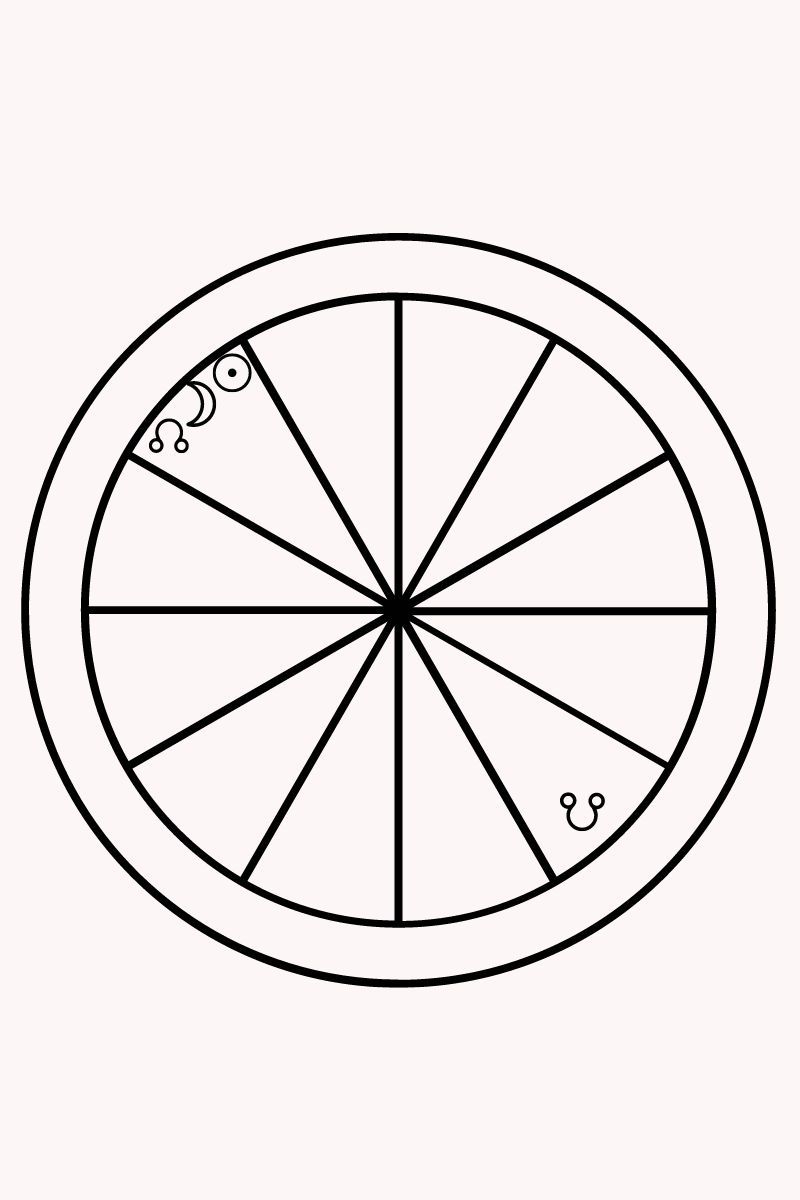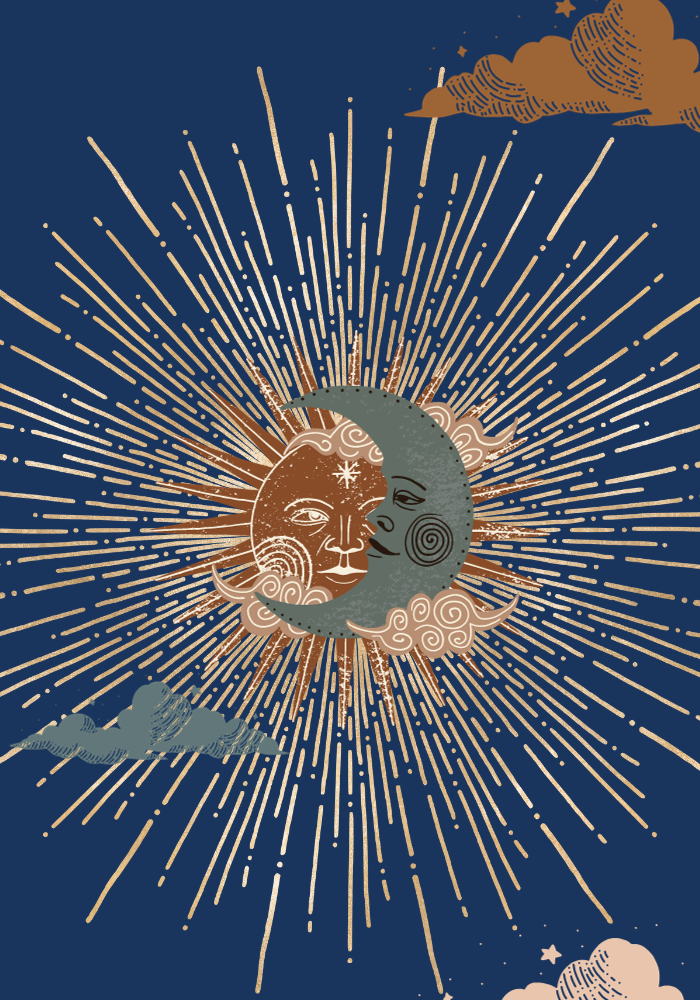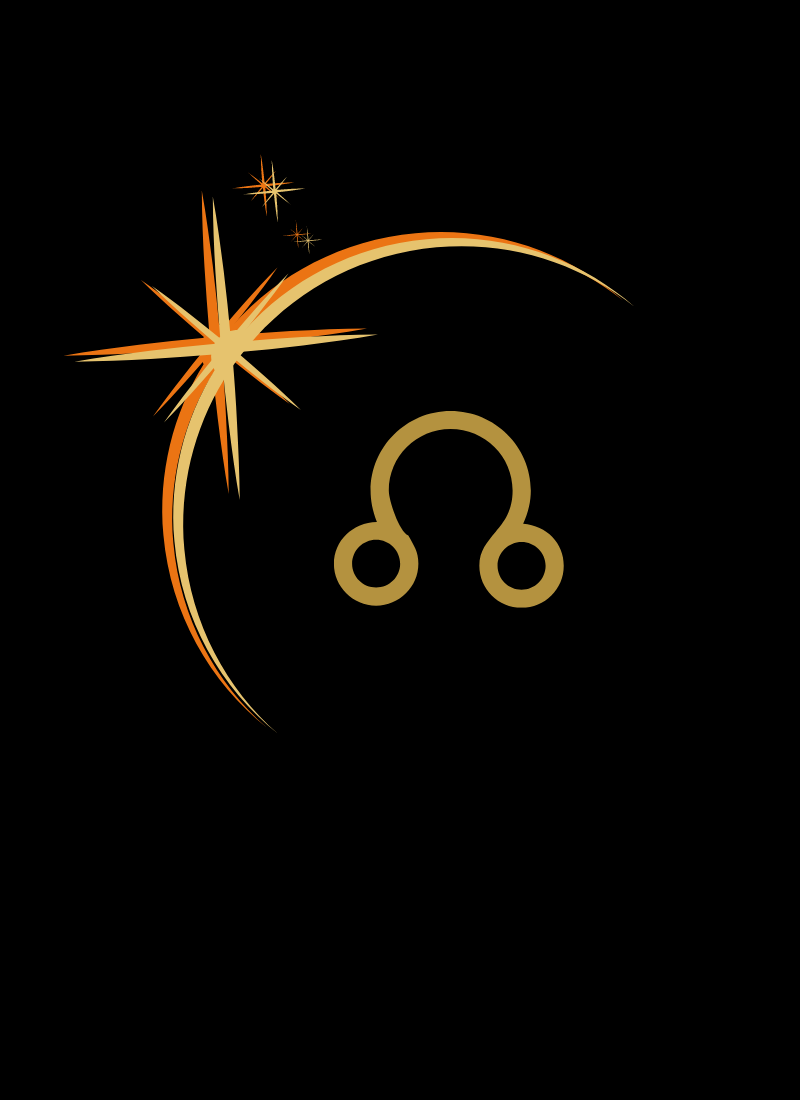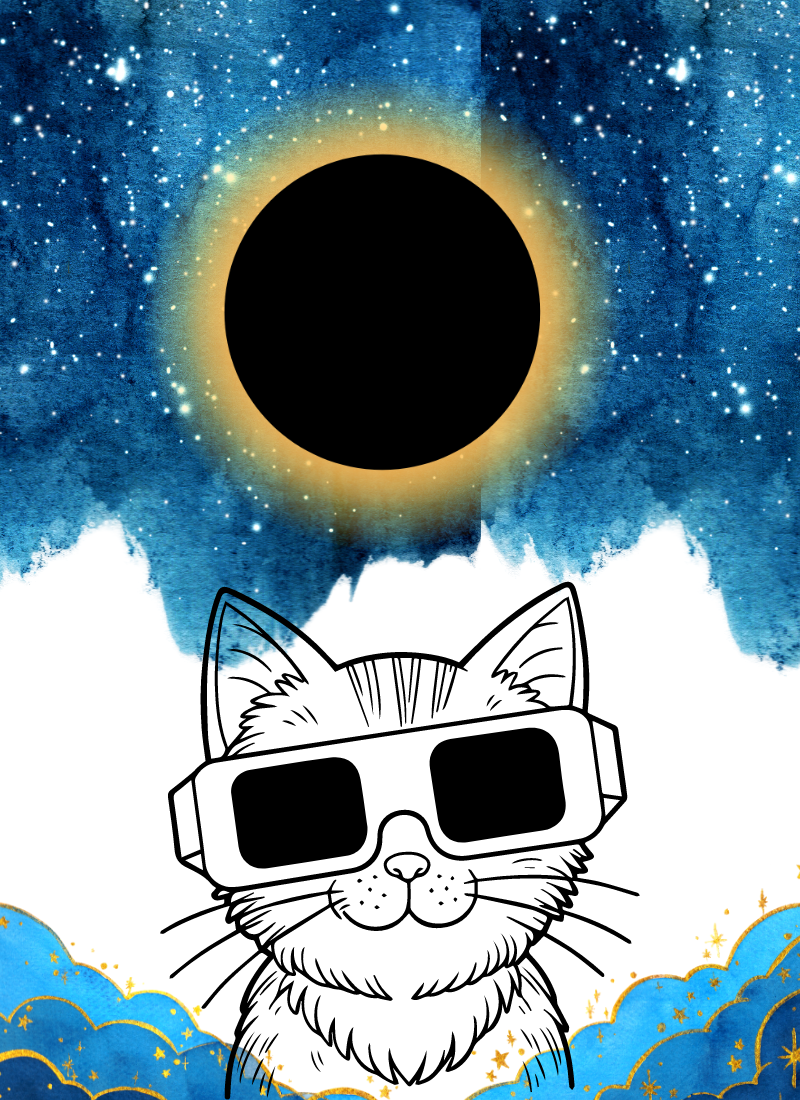Happy eclipse day!!! Or maybe not. Depending on how you look at it, eclipses have either been causing chaos or reuniting lovers for thousands of years. So today I wanted to dive into how eclipses are seen in Vedic, Western, and Chinese astrology, in addition to looking at eclipse mythos. If you're interested in learning about yesterday's eclipse, I've covered that here.
So let's start by addressing a few things. What are eclipses in astrology, and more importantly, what do they mean?
Eclipses are when the Sun, Moon, and one of the Moon's nodes are conjunct or really close together. This is why eclipses happen anywhere from four to seven times a year, because of the transit of the Sun, Moon, and lunar nodes.
In a western chart, it'd look like this:

So then we get to the second part of that question, which is: What do eclipses mean in astrology? That's more tricky to answer. In western astrology, there is a more dichotomous view: eclipses are either great for new beginnings, or they're times of incredible disruption. Some people recommend manifesting on eclipses, and others advise against it as the energy is so chaotic. Astrologers generally seem split on the meaning/ how to assign certain eclipses with what. But one thing most agree on is to look to the Saros cycle - the family of eclipses that a particular eclipse comes from. Bernadette Brady writes more extensively about this here.
In Vedic astrology, the opinion is much more uniform. Eclipses are seen as powerful, negative, events. They are seen as times of great change, and babies born on eclipses can be seen as rising to great heights, only to let their ego and pride get in the way. (And as an eclipse baby, that hurts. But I get it, though I am more familiar with ego's twin, insecurity). Therefore in Vedic astrology it is not seen as wise to make any big, major decisions on or around an eclipse. Admittedly, I cannot speak much on Vedic astrology, and would love some input. I am much more familiar with western astrology or Chinese astrology.
Chinese astrology echoes similar sentiments to Vedic - though much of ancient Chinese astrology was used for the government and/or nation state. Drums were beaten and rites were performed during an eclipse. They also have a pretty extensive collection of recorded eclipses, thirty-seven to be precise. Three of which were total solar eclipses. None of them were lunar eclipses. (Walters, p. 357-358)
It is also worth noting that many of the eclipses, if not most of them, had notes with ascribed meanings. One of the total solar eclipses has noted, "It was a good year." (Walters, p. 360) So it is worth mentioning that while the eclipses may not have been generally seen as a good thing, there were times in which they could be attributed to good happenings.
Another little tidbit about eclipses in relation to the solstices and equinoxes mentions that, " The Duke asked Zi Shen 'What is the significance of the eclipse?' He replied, 'At the solstices and equinoxes the eclipse does not indicate calamity. The Sun and Moon, in their travels, are in the same path at the equinoxes and pass each other at the solstices. At other times, there is disaster, the yang cannot overcome the yin and hence there is always disaster from water.' Zi Shen's opinions on the meaning of eclipses was to be put to the test again six years later (see the note to No. 30) ... 30. The main text relates that in Autumn, the eighth month, there was a great sacrifice for rain. But the additional Commentary tells us more. After the eclipse, the astronomer Zi Shen said there would be floods, but Chiao Zi said it signified drought! Chiao's explanation was that because the Sun had passed the equinox, the yang influence had not yet predominated, but when it did, it would be calamitous. His prediction turned out to be correct." (Walters, p. 363-364)
There were numerous other cultures that kept track of eclipses. The Maya people, for example, kept extensive track of eclipses in what is now known as the Dresden Codex and the Madrid Codex. Much of their knowledge and books were burned by Spanish. The Aztecs kept careful record of eclipses as well.
Mayan astrology is still very much intact and practiced today. I don't have many sources off the top of my head for learning, but that is because I am not equipped enough to be able to give proper sources. I do know there are a number of books, but I do not know of many blogs or free resources, for those interested in learning it.
As we move on to eclipse myths, I would like to say that mythic astrology is not my forte. But I do find it interesting. And perhaps it will help change the way we see myth.
Aboriginal myths vary from culture to culture, but there is a distinct difference in the myths of lunar and solar eclipses. More info on that here. This blog covers eclipse myths across many places in Australia. The blog has a number of posts on eclipses, such as a second post on solar eclipses here and lunar eclipses here.
Native American rituals and beliefs on eclipses are just as beautiful, and again, varied from tribe to tribe. A brief look at the Navajo, Crow, and Cherokee tribes here. (A very good read! A more modern look at eclipses.)
Some Inuit stories tell of the Sun being a woman and the Moon being a man, similar to that of some Aboriginal cultures. Here is a Korean folktale that tells a similar story of a sister becoming the Sun and a brother becoming the Moon.
The Tammari people of Togo and Benin believe the Sun and Moon are fighting, and therefore efforts must be made to stop it. It can be seen as a time to end feuds and stop fighting. I found it difficult to find more African myths, although I'm sure there are. If you know of one that you would like mentioned, please let me know, and I will include it. I do know that Nat Turner took an eclipse to mean a sign of rebellion.
Some other eclipse myths include planting flowers during an eclipse so they'll be more vibrant, or pregnancy superstitions. (Please note, I cannot find anything to back up the flower one, though it is cute).
I know there is a push to return to our roots in spirituality. So, I have tried my best. Celtic astrology is gone, and has been for some time. But that doesn't mean I can't look into Celtic cosmology. But, as the problem in many colonized places, you don't know if something is true to that culture, or if it's just made up and is essentially glorified fanfiction. So I have a few options when it comes to this:
- Ask some druidic organizations
- See if any of the clans or families would be willing to tell their stories (unlikely, understandably).
- Go to academic experts
- Give up
I have chosen to go with the first and third options. I have asked those who have read more academic literature on the subject. I have also asked some Druids, with mixed results. In doing my research for this article, I found a blog that was really helpful. (It's on the mystery eclipse of 811, it's really good!) I reached out to the blog's owner, James Palmer at the University of St Andrews, to see if he knew anything about the Celtic view on eclipses. He said nothing much - that most of the information recorded was in the late Roman / early Christian tradition, though there may be some information in later sources, but none in early sources. Thank you James for your help!
One druidic source I reached out to said that eclipses were more so seen as an on / off switch. Like a reboot. Though I am waiting for an answer from another one, so I cannot be too certain if that is a true view of eclipses.
That being said, I have tried to use native sources in this article, and while I know that is not always possible, if there is anything that is inaccurate or that you would like removed, please let me know. Or, if you would like to share your culture's stories, I would love to hear it and credit you and your culture.
Here is a list of common eclipse beliefs:
- Many cultures believed that when an eclipse happened, something took a bite out of the Sun
- Some cultures believed that an eclipse was reuniting two lovers, the Sun and the Moon (some cultures also believed that this was rape)
- Some cultures believed that eclipses signified a battle or fighting between the Sun and the Moon
- Many cultures saw it as a time of chaos, or disruption
- Some cultures saw it as a time of reset, restoration, or balance
As this article comes to a close, I would like to ask you a few questions. How many eclipses have you lived through, possibly without even knowing it? How many of them have actually affected you, from an astrological standpoint? And if we get really into it - what about people born on eclipses? How are they impacted by transit eclipses? These are all questions to consider moving forward.
Thank you so much for reading! If this helped you or you learned something new, please consider signing up for the newsletter down below. Let me know if there's anything you want me to cover next!
Best wishes,
Abby
For more resources:
Works Cited:
Walters, Derek. Chinese Astrology: The Most Comprehensive Study of the Subject Ever Published in the English Language. Watkins Publishing, 2005.
Not Works Cited but still something to consider:
Bill Meridian's book on astrocartography and eclipses (there is a transcript out there from the Astrological Association, if you wanted to look into it).





